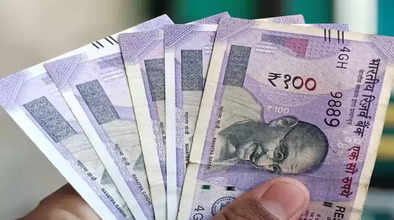How much cash can you withdraw in a day? Learn the bank's rules.
Cash Withdrawal Limit: Withdrawing or giving cash exceeding this many lakh rupees in a single day is considered illegal. The Income Tax Department can impose a fine for doing so. Find out the limit.

Most transactions are now conducted through digital payments. However, many people still use cash for household expenses, gifts, or business expenses. For this, they withdraw cash from their bank accounts. However, many people are unaware of the cash withdrawal limit.
If you frequently need cash, you should also know the daily cash withdrawal limit. The Income Tax Department has clarified the rules regarding cash withdrawals. Withdrawing or giving cash in excess of a certain limit violates tax laws.
The government now closely monitors cash transactions because large transactions increase the risk of tax evasion. Many times, due to a lack of information, people transact in large amounts of cash and later receive a tax notice.
According to Section 269ST of the Income Tax Act, a person can receive or transfer a maximum of Rs 2 lakh in cash in a single day. Any cash transaction exceeding this limit is considered a direct violation of the rules. This limit applies to every payment, whether it's a gift, a loan, or a business payment.
The department may consider receiving more than Rs 2 lakh in cash from an individual in a single day a red flag. If someone violates this rule, the penalty is quite strict. The penalty can be the same as the amount of cash taken.
For example, if you accept Rs 2.5 lakh in cash, you could be fined only Rs 2.5 lakh. This penalty is imposed under Section 271DA of the Income Tax Act and applies to the person receiving the money, not the person giving it.
The government has enacted these rules because cash is difficult to track. Digital or banking transactions record everything, increasing transparency. Even personal transactions are not exempt from this rule. Meaning, if you give more than two lakh rupees in cash to a relative or friend, the department can investigate it.

